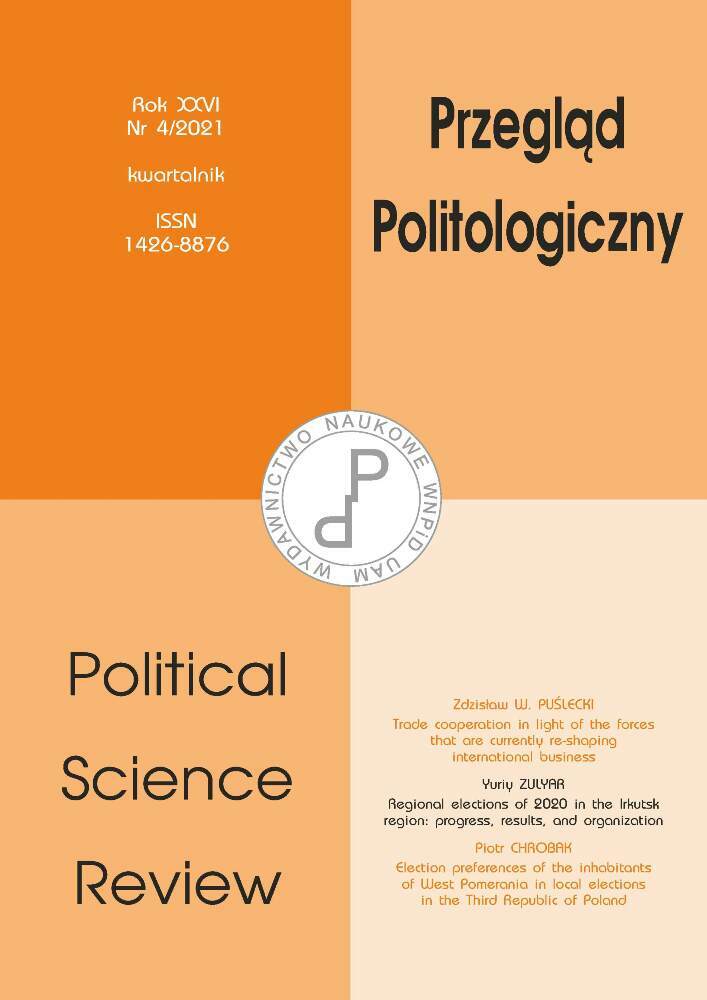Abstract
The study examined local government autonomy and local government service delivery in Nigeria. the study discovered that, Nigerian local government needs to be autonomous in the discharge of its statutory responsibility, if ongoing agitation for local government autonomy from different quarters in Nigeria is given an approval, this will strengthen local government’s service delivery. The study discovered that some states in Nigeria oppose local government autonomy due to political and economic considerations. The study further revealed that Irepodun local government (the micro-case study) in Nigeria is not totally autonomous. Although, local governance is transparent and accountable in Irepodun Local Government, especially in the identification, formulation and execution of its projects, Irepodun local government authority has a huge financial challenge in carrying out service delivery. The study therefore recommends that; the state joint local government account should be abolished from the Nigerian constitution to enable allocation of funds directly to the local governments from Federation account. they should also put a stop to the persistence deduction from the monthly allocation of local governments. Again, states should henceforth be made to remit regularly the constitutional 10% of their internally generated revenue to the local government authorities. Irepodun local government and other local government authorities in Nigeria emplace more efforts on sustainable wealth creation rather than depending solely on the grants from the federal and state governments.
References
Abubakar S. (2017), Local Government and the 1999 Constitution, in: Politics and Political Power Relation in Nigeria, ed. M. Kwanashie, Oat and Partner, Zaria.
Anyebe D. (2017), On Democratic Dividends, “The Nigerian Tribune” of 9th January.
Adeyemo D. O. (2005), Financial and Administrative Procedure in Nigerian Local Government, Local Government publication series, Ile-Ife.
Ademolekun L. (2004), Public Administration; A Nigerian and Comparative Perspective, Longman Inc., New York.
Agagu S. (2004), Continuality and Change in Local Government Administration and the Politics of Underdevelopment, in: Development Agenda of Nigeria State, eds. A. Agagu, R. Ola, Fiag Publishers, Ibadan.
Akwara F. S. (2013), Political Experiences in Nigeria.
Almond G. A. (1960), The Politics of the Development Areas, Princeton University Press, Princeton, NJ.
Angahar A. P. (2013), The Impact of Existing Inter-Governmental Financial Relations on Effective Service Delivery at the Grassroots in Nigeria, “International Journal of Academic Research in Accounting, Finance and Management Sciences”, vol. 3.
Arowolo D. (2005), Local Government Administration in Nigeria: An Insider View, in: Local Government Studies, eds. D. Owolabi, A. Aladegbola, Excel Production, Akure.
Asaju E. (2010), The Idea of Local Government as a third tier level of government, in: L. Ademolekun, L. Roland, The NewLocal Government System in Nigeria: Problems and Prospects for Implementation, Heinemann Books, Ibadan.
Birch A. (2009), Reforming Public Service Delivery, “Journal of African Economies”, vol. 16, AERC Supplement 1, pp. 127.
Bolatito (2014), Issues in Nigerian Government and Administration, Denvic Publishing Company, Benin City.
Gboyega A. (2009), Sustaining Democracy in Nigerian Local Government: The Role of Legislatures, in: Contemporary Issues in the Social Sciences, eds. S. Akindele, C. Ajila, Ile-Ife.
Hassan K. (2011), Local Government in Nigeria: Relevance and Effectiveness in Poverty Reduction and Economic Development, “Journal of Economic and Sustainable Development”, vol. 1.
Ikeanyibe H. (2008), Local Government in Historical Perspective, “Nigerian Journal of Public Administration and Local Government”.
Odo A. (2014), Corruption by Examples: Legalizing the illegal as a Means of Survival in Modern Nigeria, “Bangladesh e-journal of Sociology”, 5(1), January.
Ojo E. (2009), Efficient management for local governments: The Nigerian Experience.
Okoli A. S. (2009), The challenges and opportunities for improving the Local Government System in Nigeria, Paper presented at the Third Biennial National Conference on Community Development in Nigeria held at Grand Hotel, Asaba.
Oladunjoye A. (2010), Some Thoughts on the Role of Local Government in Developing Countries (Nigeria), in: Local Government in West Africa since Independence, ed. A. Adamolekun, University of Lagos Press, Lagos.
Oviasuyi B. O. (2010), Management of intergovernmental relations in Nigeria: Problems and Prospect, “ASCON Journal of Management”, 3, pp. 41–50.
Roberts D. (1999), The theory and practice of federalism as a structural mechanism of governance: How adequate for gender struggle and representation in Nigeria?, “Anthropologist”, 5(3), pp. 169–178.
Weber M. (1946), Theories and Values of Local Government, “Political Science Studies”, vol. 18.
Wheare K. C. (2003), Federalism: National and International in Theory and Practice, Wheare, A Pager Publisher, New York, pp. 57–99.
Yahaya B. (2009), Local Government in Nigeria: An Overview of Structures and Functions, in: Key Issues in Local Government and Development: A Nigerian Perspective, ed. T. Onyishi, Praise House Publishers, Enugu.
Yusuf S. (2012), Local government autonomy and local government service delivery, “A Journal of Constitutional Development”, vol. 6, no. 2, pp. 21–45.

